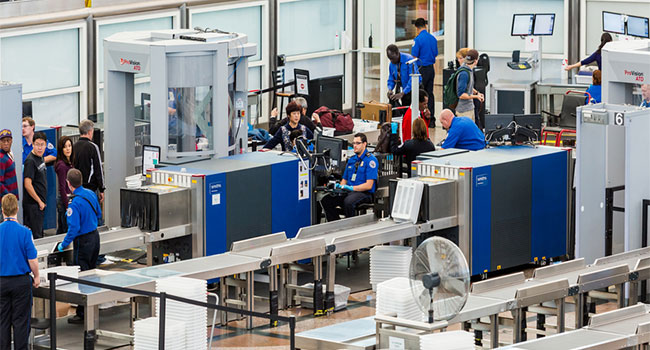
TSA Plans For Hiring and Overtime Freeze Ahead of Spring Break Travel Season
The agency faces pressure to cut costs in the face of a pay increase for federal workers, but DHS officials say they will expand hiring after the freeze ends in April.
- By Haley Samsel
- Feb 24, 2020
With spring break travel season in sight, the Transportation Security Administration has frozen hiring and overtime for security screeners, according to Department of Homeland Security officials.
The department is hoping to save money with the measures, which will be in place through April 26, according to reporting from KUER, Utah’s NPR station. But there are concerns among security officials that the hiring freeze could lead to longer lines and not enough staff to handle the growing number of passengers coming through domestic airports each week.
“In anticipation of another record-breaking summer travel season, the Transportation Security Administration is managing resources by prioritizing overtime to the busiest of travel periods,” the TSA told KUER in a statement. “Additionally, TSA will continue to assess applicants for entry into TSA, and will conduct two extended hiring windows to coincide with the busy summer travel season.”
In its 2021 budget, the DHS said it anticipates a 4 percent growth in passenger traffic in the upcoming year and previewed its plans to have a delay in hiring early in the year. The agency is addressing a pay raise for federal employees by redirecting funding for hiring to meet the salary increase requirements.
A hiring freeze for the TSA is fairly rare, according to the union that represents agency employees. Hydrick Thomas, who leads the American Federation of Government Employees TSA Council 100 told KUER that he had not seen a freeze since joining the agency in 2002. There has not been a memo issued about the matter, as is typical procedure.
“You always have overtime — no matter how much staff you hire,” Thomas said. This agency has large turnover every month. What are you going to do when you have no staff to process passengers?”
Once the measure ends in April, there will be a rush to hire people as soon as possible, particularly for new airports and locations where passenger growth is highest. Congressional lawmakers are still waiting for more details, and airline industry trade groups have not commented publicly as the TSA has not released more information about the measures.
Additional challenges await the TSA as they prepare to implement the REAL ID Act starting on Oct. 1, which requires airline passengers to obtain driver’s licenses or state-issued IDs that have a star in the upper-right corner. The new licenses are mandated by the 2005 Real ID Act, which requires states to issue IDs with features that make it harder for terrorists or criminals to replicate them.
About the Author
Haley Samsel is an Associate Content Editor for the Infrastructure Solutions Group at 1105 Media.